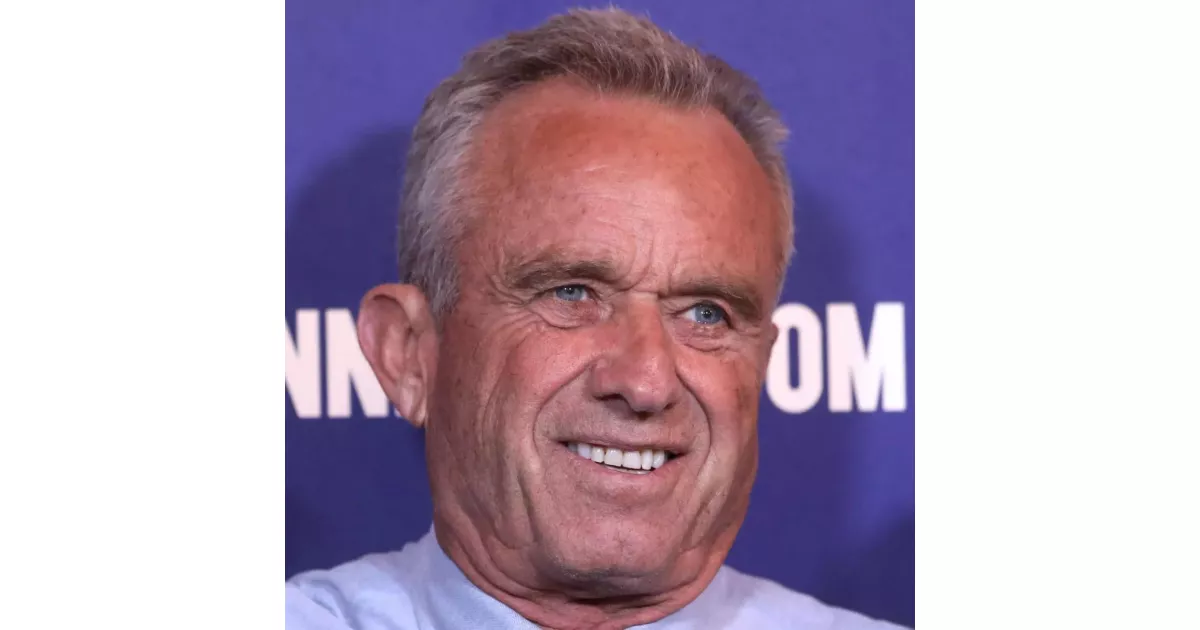Discover the career path of Robert F. Kennedy Jr., from the first major opportunity to industry-changing achievements.
Robert F. Kennedy Jr., an American politician, environmental lawyer, author, and member of the Kennedy family, is the son of Robert F. Kennedy and nephew of President John F. Kennedy. He currently serves as the 26th United States Secretary of Health and Human Services. RFK Jr. is also known for his anti-vaccine activism and promotion of conspiracy theories.
1975: First Descent of the Apurimac River
In 1975, Robert F. Kennedy Jr. organized and led a "first-descent" whitewater expedition to the Apurimac River in Peru.
1976: Work on Sargent Shriver's presidential campaign
In 1976, Kennedy worked on his uncle Sargent Shriver's presidential campaign in Massachusetts.
1976: Partner at Utopian
In 1976, Robert F. Kennedy Jr. became a partner and guide at a whitewater company, Utopian, based in West Forks, Maine.
1979: First Descent of the Atrato River
In 1979, Robert F. Kennedy Jr. organized and led a "first-descent" whitewater expedition to the Atrato River in Colombia.
1980: Work on Ted Kennedy's presidential campaign
In 1980, Kennedy was on the national staff and a state coordinator for his uncle Ted Kennedy's presidential campaign.
1980: Beginning of hostility towards environment within Republican Party
In a 2020 interview, Kennedy stated that since 1980, there has been a growing hostility towards the environment within the Republican Party.
June 1981: Anti-Nuclear Rally at the Hollywood Bowl
In June 1981, Kennedy spoke at an anti-nuclear rally at the Hollywood Bowl with musicians Stephen Stills, Bonnie Raitt, and Jackson Browne.
1981: End of Partnership at Utopian
In 1981, Robert F. Kennedy Jr.'s partnership at a whitewater company Utopian, based in West Forks, Maine, ended.
1982: First Descent of the Caroni River
In 1982, Robert F. Kennedy Jr. organized and led a "first-descent" whitewater expedition to the Caroni River in Venezuela.
1982: Sworn in as Assistant District Attorney
In 1982, Robert F. Kennedy Jr. was sworn in as an assistant district attorney for Manhattan.
July 1983: Resigned After Failing Bar Exam
In July 1983, Robert F. Kennedy Jr. resigned as an assistant district attorney for Manhattan after failing the New York bar exam.
1984: Began Volunteering at Hudson River Fisherman's Association
In 1984, Robert F. Kennedy Jr. began volunteering at the Hudson River Fisherman's Association.
1985: Developed International Program for NRDC
In 1985, Robert F. Kennedy Jr. helped develop the international program for environmental, energy, and human rights of the Natural Resources Defense Council (NRDC). He traveled to Canada and Latin America to assist indigenous tribes in protecting their homelands.
1985: Admitted to the New York Bar
In 1985, Robert F. Kennedy Jr. was admitted to the New York bar and subsequently hired by Riverkeeper as a senior attorney.
1986: Adjunct Professor at Pace University School of Law
In 1986, Robert F. Kennedy Jr. became an adjunct professor of environmental law at Pace University School of Law.
1987: Founded Pace's Environmental Litigation Clinic
In 1987, Robert F. Kennedy Jr. founded Pace University's Environmental Litigation Clinic.
1987: Founded Environmental Litigation Clinic at Pace University
In 1987, Robert F. Kennedy Jr. founded the Environmental Litigation Clinic at Pace University School of Law.
1987: Sued Westchester County to Reopen Croton Point Park
In 1987, Robert F. Kennedy Jr. successfully sued Westchester County to reopen Croton Point Park, used primarily by poor and minority communities. He later forced the reopening of Pelham Bay Park after it was converted into a police firing range.
1987: Authored NY Examination for Apprentice Falconers
In 1987, while on Governor Mario Cuomo's New York State Falconry Advising Committee, Robert F. Kennedy Jr. authored New York State's examination to qualify apprentice falconers. Later that year, he wrote the New York State Apprentice Falconer's Manual.
1988: President of NYS Falconry Association
In 1988, Robert F. Kennedy Jr. became the president of the New York State Falconry Association.
1990: Assisted Pehuenches Against Dam Construction
In 1990, Robert F. Kennedy Jr. assisted indigenous Pehuenches in Chile in a partially successful campaign to stop the construction of dams on Chile's Biobío River, derailing all but one of the proposed dams.
1991: Represented Environmentalists in Lawsuits
Beginning in 1991, Robert F. Kennedy Jr. represented environmentalists and New York City watershed consumers in a series of lawsuits against New York City and upstate watershed polluters.
1991: End of term at NYS Falconry Association
In 1991, Robert F. Kennedy Jr.'s term as president of the New York State Falconry Association ended.
1992: Assisted Cree Indians Against Hydro-Québec
Beginning in 1992, Robert F. Kennedy Jr. assisted the Cree Indians of northern Quebec in their campaign against Hydro-Québec to halt construction of some 600 proposed dams on eleven rivers in James Bay.
1993: Worked with Vancouver Island Indian Tribes
From 1993, Robert F. Kennedy Jr. worked with five Vancouver Island Indian tribes in their campaign to end industrial logging by MacMillan Bloedel in Clayoquot Sound, British Columbia.
1993: Clashed with Environmental Groups over Indigenous Rights
In 1993, Robert F. Kennedy Jr. and NRDC clashed with other American environmental groups in a dispute about the rights of Indians to govern their own lands in the Oriente region of Ecuador. Kennedy represented CONFENIAE in negotiations with Conoco to limit oil development and obtain benefits for Amazonian tribes, while also criticizing Texaco's past pollution record.
1993: Early Descent of the Great Whale River
In 1993, Robert F. Kennedy Jr. made an early descent of the Great Whale River in northern Quebec, Canada.
1995: Declared Persona Non Grata in Alberta
In 1995, Premier Ralph Klein of Alberta declared Kennedy persona non grata in the province due to his activism against Alberta's large-scale hog production facilities.
1995: Advocated for Repeal of Environmental Legislation
In 1995, Robert F. Kennedy Jr. advocated for repeal of legislation that he considered unfriendly to the environment.
1996: Helped Halt Mitsubishi's Salt Facility Proposal
Between 1996, Robert F. Kennedy Jr. and the NRDC helped Mexican commercial fishermen halt Mitsubishi's proposal to build a salt facility in the Laguna San Ignacio, an area in Baja where gray whales breed. Kennedy wrote in opposition and campaigned in Japan, meeting with Prime Minister Keizo Obuchi.
1996: Orchestrated $1.2 Billion New York City Watershed Agreement
In 1996, Robert F. Kennedy Jr. helped orchestrate the $1.2 billion New York City Watershed Agreement.
1996: Met with Fidel Castro About Nuclear Power Plant
In 1996, Robert F. Kennedy Jr. met with Cuban president Fidel Castro to persuade him to halt his plans to construct a nuclear power plant at Juraguá. Castro reminisced about Kennedy's father and uncle during the meeting.
June 1999: Founded Waterkeeper Alliance
In June 1999, Robert F. Kennedy Jr. and a few dozen Riverkeepers gathered in Southampton, Long Island, to found the Waterkeeper Alliance.
1999: Founded Waterkeeper Alliance
In 1999, Robert F. Kennedy Jr. founded the non-profit environmental group Waterkeeper Alliance.
1999: Created Keeper Springs Bottled Water Company
In 1999, Robert F. Kennedy Jr., Chris Bartle, and John Hoving created Keeper Springs, a bottled water company that donated all profits to the Waterkeeper Alliance.
1999: Worked with Vancouver Island Indian Tribes
Until 1999, Robert F. Kennedy Jr. worked with five Vancouver Island Indian tribes in their campaign to end industrial logging by MacMillan Bloedel in Clayoquot Sound, British Columbia.
2000: Sued Factory Farms
Beginning in 2000, Robert F. Kennedy Jr. sued factory farms in North Carolina, Oklahoma, Maryland, and Iowa.
2000: Endorsement of Al Gore's presidential campaign
In 2000, Kennedy endorsed and campaigned for Vice President Al Gore during his presidential campaign and openly opposed Ralph Nader's Green Party presidential campaign.
2000: Founded Kennedy & Madonna, LLP
In 2000, Robert F. Kennedy Jr. and Kevin Madonna founded the environmental law firm Kennedy & Madonna, LLP.
2000: Assisted in Stopping Hotel and Resort Development in Bahamas
In 2000, Robert F. Kennedy Jr. assisted local environmental activists to stop Chaffin Light and Bechtel from building a large hotel and resort development at Clifton Bay, New Providence Island, arguing it threatened coral reefs and public beaches.
2000: Considered Running for U.S. Senate
In 2000, Robert F. Kennedy Jr. considered running for political office when Daniel Patrick Moynihan, a U.S. senator from New York, did not seek reelection to the seat formerly held by Kennedy's father.
2000: Considered for White House Council Chair
In the 2000s, Robert F. Kennedy Jr. was considered for top environmental jobs in Democratic administrations. In 2000, he was considered as a potential chair of the White House Council on Environmental Quality for Al Gore.
2001: Challenged Pollution from Industrial Pork and Poultry Production
In 2001, Kennedy & Madonna organized a team of plaintiff law firms to challenge pollution from industrial pork and poultry production.
2001: Sued U.S. Navy and Arrested in Vieques Protest
In 2001, Robert F. Kennedy Jr. sued the U.S. Navy on behalf of fishermen and residents of Vieques, Puerto Rico, to stop weapons testing. He argued the activities were unnecessary and illegally harmed endangered species, polluted waters, damaged health, and the economy. He was arrested for trespassing at Camp Garcia Vieques and served 30 days in a maximum security prison.
2001: Waterkeeper Launched "Clean Coal is a Deadly Lie" Campaign
In 2001, under Robert F. Kennedy Jr.'s leadership, Waterkeeper launched its "Clean Coal is a Deadly Lie" campaign.
2002: Smithfield Foods Lawsuit in Poland
In 2002, Smithfield Foods sued Kennedy in Poland for criticizing the company in a debate with Smithfield's Polish director before the Polish parliament.
2003: Article on the Martha Moxley Murder Case
In 2003, Kennedy published an article in The Atlantic Monthly about the 1975 murder of Martha Moxley, arguing for Michael Skakel's innocence and suggesting Kenneth Littleton as the possible killer.
2003: Called U.S. Government "America's Biggest Polluter"
In a 2003 article for the Chicago Tribune, Robert F. Kennedy Jr. called the U.S. federal government "America's biggest polluter" and the U.S. Department of Defense the worst offender, citing EPA findings of unexploded ordnance waste on military ranges.
2003: Article on Factory Farms
In a 2003 article, Robert F. Kennedy Jr. argued that factory farms produce lower-quality, less healthy food and harm independent family farmers.
2003: Criticism of Bush's Environmental and Energy Policies
Throughout the presidency of George W. Bush, including in 2003, Kennedy criticized Bush's environmental and energy policies, stating that Bush was defunding and corrupting federal science projects and was critical of Bush's hydrogen car initiative.
2004: Secured $70 Million Settlement in Pensacola
In 2004, Kennedy & Madonna was part of a legal team that secured a $70 million settlement for property owners in Pensacola, Florida, whose properties were contaminated by chemicals from an adjacent Superfund site.
2004: Endorsement of John Kerry and Allegations of Election Fraud
In 2004, Kennedy endorsed John Kerry for president, citing Kerry's environmental record. After Kerry's loss to George W. Bush, Kennedy wrote an article for Rolling Stone alleging fraudulent results and a stolen election, based on discrepancies in exit polling and voter disenfranchisement.
2004: Publication of Saint Francis of Assisi: A Life of Joy
In 2004, Robert F. Kennedy Jr. published a biography, "Saint Francis of Assisi: A Life of Joy."
2004: Allegations of Stolen Presidential Election
In June 2006, Kennedy published an article alleging that the 2004 presidential election was stolen for George W. Bush.
2004: Considered for EPA Administrator
In the 2000s, Robert F. Kennedy Jr. was considered for top environmental jobs in Democratic administrations. In 2004, he was considered for the role of EPA administrator under John Kerry.
June 2005: Kennedy Publishes Controversial "Deadly Immunity" Article
In June 2005, Robert F. Kennedy Jr. wrote an article, "Deadly Immunity", published in Rolling Stone and Salon.com, alleging a government conspiracy to conceal a link between thimerosal and childhood neurodevelopmental disorders, including autism. The article contained factual errors, leading Salon to issue five corrections.
2005: Considered Running for New York Attorney General
In 2005, Robert F. Kennedy Jr. considered running for New York attorney general in the 2006 election, which would have put him up against his then-brother-in-law Andrew Cuomo. He ultimately chose not to, despite being considered the front-runner.
June 2006: Publication of Article on 2004 Presidential Election
In June 2006, Kennedy published an article in Rolling Stone alleging that GOP operatives stole the 2004 presidential election for George W. Bush, an argument that was widely regarded as a conspiracy theory.
2006: Considered Running for New York Attorney General
In 2006, Robert F. Kennedy Jr. did not run for New York attorney general.
2007: Nominated as "Trial Lawyer of the Year"
In 2007, Robert F. Kennedy Jr. was nominated as "Trial Lawyer of the Year" by Public Justice for his role in a $396 million jury verdict against DuPont for contamination from its Spelter, West Virginia, zinc plant.
2007: Endorsement of Hillary Clinton in 2008 Democratic primaries
In late 2007, Kennedy and his sisters Kerry and Kathleen endorsed Hillary Clinton in the 2008 Democratic Party presidential primaries.
December 2, 2008: Declined Consideration for U.S. Senate Seat
On December 2, 2008, Robert F. Kennedy Jr. said he did not want New York Governor David Paterson to nominate him to the U.S. Senate seat to be vacated by Hillary Clinton. He cited a desire to spend more time with his family as the reason.
2008: Campaigning for Obama and EPA Administrator Consideration
Following the Democratic Convention in 2008, Kennedy campaigned for Obama across the country. The Obama administration considered Kennedy for administrator of the Environmental Protection Agency but ultimately decided against it due to his controversial statements and past arrest.
2008: Considered for EPA Administrator
In the 2000s, Robert F. Kennedy Jr. was considered for top environmental jobs in Democratic administrations. In 2008, he was considered for the role of EPA administrator under Barack Obama.
April 2, 2009: Recognition as one of Rolling Stone's "100 Agents of Change"
On April 2, 2009, Kennedy was recognized as one of Rolling Stone's "100 Agents of Change" for his opposition to the Bush administration's environmental policies.
2010: Pace Lawsuit Forced ExxonMobil Cleanup
In 2010, a Pace University lawsuit forced ExxonMobil to clean up tens of millions of gallons of oil from legacy refinery spills in Newtown Creek in Brooklyn.
October 2011: Co-founded EcoWatch
In October 2011, Robert F. Kennedy Jr. co-founded EcoWatch, an environmental news site.
2011: Salon.com Retracts "Deadly Immunity" Article
In 2011, Salon.com retracted Robert F. Kennedy Jr.'s "Deadly Immunity" article due to accumulating evidence of alleged errors and scientific fraud underlying the vaccine-autism claim. A corrected version was published on Rolling Stone's website. Kennedy claimed Salon caved to pressure, which the editor denied.
October 2012: Call to direct dissatisfaction toward Congress
During an October 2012 interview with Politico, Kennedy urged environmentalists to focus their dissatisfaction on Congress rather than President Barack Obama, citing a partisan Congress as the reason for Obama's lack of progress. He criticized politicians who do not address climate change and accused Charles and David Koch of subverting democracy.
2012: Contribution to "Billionaires and Ballot Bandits"
In 2012, Kennedy wrote the introduction and a chapter in "Billionaires and Ballot Bandits", a book on election hacking by Greg Palast.
February 2013: Arrest During Keystone XL Pipeline Protest
In February 2013, Kennedy and his son, Conor, were arrested for blocking a thoroughfare in front of the White House while protesting the Keystone XL Pipeline.
2013: Fracking Ban in New York State
In 2013, as a member of Governor Andrew Cuomo's fracking commission, Kennedy helped engineer a ban on fracking in New York State.
2014: Remarks during the People's Climate March
During the 2014 People's Climate March, Kennedy described the Koch brothers as leading "the apocalyptical forces of Ignorance and Greed" and highlighted their significant financial contributions to efforts against climate bills.
2015: Effort Against Liquefied Natural Gas Facilities
In 2015, Kennedy mounted a national effort against the construction of liquefied natural gas facilities.
2015: Kennedy Joins Anti-Vaccine Advocacy Group
In 2015, Robert F. Kennedy Jr. joined the World Mercury Project, an anti-vaccine advocacy group, later known as Children's Health Defense, focusing on mercury in industry and medicine, particularly thimerosal in vaccines.
2015: Kennedy's book published
In 2015, Robert F. Kennedy Jr. wrote in his book, "Thimerosal: Let the Science Speak", that he does not see himself as anti-vaccine, but rather wants vaccines to be as safe as possible.

2015: Remarks on Politicians Skeptical of Global Warming
In a 2015 interview, Kennedy expressed a desire for a law to punish politicians skeptical of global warming. He emphasized that environmentalists should focus on tackling the "carbon industry."
August 2016: Dakota Access Pipeline Protest
In August 2016, Kennedy and Waterkeepers participated in protests to block the extension of the Dakota Access pipeline across the Sioux Indian Standing Rock Reservation's water supply.
2016: Remarks on Donald Trump and his Supporters
In 2016, Kennedy described supporters of presidential candidate Donald Trump as "belligerent idiots" and suggested some were "outright Nazis". He also called Trump a "bully" and a "threat to democracy", comparing him to Adolf Hitler and George Wallace.
2016: Release of "Framed: Why Michael Skakel Spent over a Decade in Prison for a Murder He Didn't Commit"
In 2016, Kennedy released the book "Framed: Why Michael Skakel Spent over a Decade in Prison for a Murder He Didn't Commit", further arguing for Skakel's innocence in the Martha Moxley murder case.
2016: Became Counsel to Morgan & Morgan
In 2016, Robert F. Kennedy Jr. became counsel to the Morgan & Morgan law firm following their successful collaboration on the case against SoCalGas Company after the Aliso Canyon gas leak in California.
2016: Endesa Relinquished Claims to the Futaleufú River
In 2016, due to the pressure precipitated by the Futaleufú Riverkeepers campaign against the dams, the Spanish power company Endesa, which owned the right to dam the Futaleufú River, reversed its decision and relinquished all claims to the river. Kennedy helped lead the opposition to the damming.
January 10, 2017: Kennedy Meets with Trump, Discusses Position in Administration
On January 10, 2017, Robert F. Kennedy Jr. met with President-elect Donald Trump to discuss a position in the Trump administration. Kennedy claimed he accepted an offer to chair the Vaccine Safety Task Force, but Trump's team said no final decision was made.
June 2017: Remarks on the Oil Industry's Strategy
In a June 2017 interview on EnviroNews, Kennedy discussed the oil industry's strategy, stating their goal is to build as many miles of pipeline as possible to increase infrastructure investment and prevent the country from moving away from it.
August 2017: Kennedy Meets with Federal Public Health Regulators
In August 2017, Robert F. Kennedy Jr. stated he had been meeting with federal public health regulators at the White House's request to discuss defects in vaccine safety science.
October 5, 2017: Installation of Advanced Flow Batteries
On October 5, 2017, Vionx, National Grid, and the U.S. Department of Energy completed the installation of advanced flow batteries at Holy Name High School in Worcester, Massachusetts. Robert F. Kennedy Jr. is on the board of Vionx, the manufacturer of the battery systems.
2017: Sued Monsanto over Roundup
In 2017, Kennedy and his partners sued Monsanto in federal court in San Francisco on behalf of plaintiffs seeking damages for non-Hodgkin's lymphoma, alleging it resulted from exposure to Monsanto's glyphosate-based herbicide, Roundup. They also filed a class action lawsuit against Monsanto for failing to warn consumers about Roundup's alleged dangers.
2017: Secured Settlement for Water Contamination
In 2017, Kennedy's firm secured a $670 million settlement for over 3,000 residents from Ohio and West Virginia whose drinking water was contaminated by perfluorooctanoic acid released by DuPont into the environment in Parkersburg, West Virginia.
2017: Argued for Renewable Energy Replacement of Indian Point
In 2017, Robert F. Kennedy Jr. argued that the electricity provided by the Indian Point nuclear power plant could be fully replaced by renewable energy.
2017: TV series optioned for "Framed"
In 2017, the rights to Kennedy's book "Framed: Why Michael Skakel Spent over a Decade in Prison for a Murder He Didn't Commit" were optioned by FX Productions to develop a multi-part television series.
January 2018: Resigned from EcoWatch Board
In January 2018, Robert F. Kennedy Jr. resigned from the board of directors of EcoWatch, an environmental news site he co-founded.
September 2018: Filed Class-Action Lawsuit Against Columbia Gas
In September 2018, Kennedy and his partners filed a class-action lawsuit against Columbia Gas of Massachusetts alleging negligence following gas explosions in three towns north of Boston. Kennedy criticized Columbia Gas for ignoring its existing infrastructure while building new pipelines.
2019: Kennedy listed as executive producer of anti-vaccination film
In 2019, Kennedy is listed as executive producer of "Vaxxed II: The People's Truth", the sequel to the anti-vaccination propaganda film "Vaxxed".
November 2020: Resigned from Waterkeeper Alliance Presidency
In November 2020, Robert F. Kennedy Jr. resigned from the Waterkeeper Alliance presidency.
2020: Criticism of Market Rules
In 2020, Kennedy criticized the market, stating that the rules were written by carbon incumbents to reward the "dirtiest, filthiest, most poisonous, most toxic, most war-mongering fields from hell", rather than clean and green fields.
2020: Criticism of Trump's environmental policies
In a 2020 interview on Yahoo Finance's "Influencers with Andy Serwer", Kennedy described President Trump's environmental policies as a "cataclysm" and part of a trend in the Republican Party toward hostility towards the environment and corporate power.
2020: Support for Green New Deal
In a 2020 interview, Kennedy stated his support for Alexandria Ocasio-Cortez's Green New Deal resolution, advocating for market-based mechanisms like carbon taxes and the elimination of subsidies.
2022: Criticism of Biden administration's role in Ukraine invasion
In 2022, Robert F. Kennedy Jr. stated that the Biden administration's actions were a major cause of Russia's invasion of Ukraine, particularly citing NATO expansion. At the same time, he clarified that his criticism should not be taken as support for Putin's government, which he ethically opposes and characterized Putin as a "monster", "thug", and "gangster".
March 3, 2023: Announced Consideration of Presidential Run
On March 3, 2023, Robert F. Kennedy Jr. stated in a speech in New Hampshire that he was considering a run for president in 2024, mentioning his wife's approval as a major hurdle cleared.
April 5, 2023: Filed Candidacy for Democratic Presidential Nomination
On April 5, 2023, Robert F. Kennedy Jr. filed his candidacy for the Democratic presidential nomination.
May 2023: Support for Agrarian Movements
In May 2023, Kennedy voiced support for agrarian movements, stating that a broad ownership of land by yeoman farmers is essential for democracy.
June 2023: Contamination and gender dysphoria podcast
In June 2023, during a podcast interview with Jordan Peterson, Robert F. Kennedy Jr. suggested that atrazine contamination in the water supply could be linked to gender dysphoria in children. This statement, along with the podcast interview, was subsequently criticized by various publications and removed by YouTube under its vaccine misinformation policy.
August 2023: Mellon Donated to Kennedy's Super PAC
In August 2023, it was revealed that Timothy Mellon, a donor to Donald Trump's super PAC MAGA Inc., had also donated $5 million to Robert F. Kennedy Jr.'s super PAC, making him Kennedy's largest single donor at the time.
November 2023: Petition for Release of JFK Assassination Documents
In November 2023, Robert F. Kennedy Jr. launched a petition on his presidential campaign website, urging the Biden administration to release the remaining documents related to the JFK assassination.
2023: Kennedy Chaired Children's Health Defense
From 2015 to 2023, Robert F. Kennedy Jr. chaired the Children's Health Defense, formerly known as the World Mercury Project, an anti-vaccine advocacy group.
2023: Views on Nuclear Power
In 2023, Kennedy expressed his opposition to conventional nuclear power, arguing that it is unsafe and not economically competitive, and views nuclear energy as a profit-making venture promoted by corporate lobbyists.
2023: Presidential Campaign Named 'Lie of the Year'
In 2023, PolitiFact named Robert F. Kennedy Jr.'s presidential campaign its "lie of the year" due to the use of false conspiracy theories during campaign appearances.
2023: Views on Environmentalism
In 2023, Robert F. Kennedy Jr. claimed to be the "leading environmentalist in the country" and criticized figures like Bill Gates and the World Economic Forum for allegedly hijacking the climate crisis. He advocates for populist and anti-establishment environmental policies.
May 2024: Lost Libertarian Party's Nomination for President
In May 2024, Robert F. Kennedy Jr. was considered for the Libertarian Party's nomination for president but lost to Chase Oliver. The Colorado Libertarian Party selected Kennedy, but Oliver appeared on the ballot.
July 2024: Mellon's Donations to Kennedy and Affiliated Groups
In July 2024, Forbes reported that Timothy Mellon had donated $25 million to Robert F. Kennedy Jr. and Kennedy-affiliated groups.
August 2024: Endorsement of Trump and Chemtrail Conspiracy
In August 2024, after endorsing Trump for president and beginning to work with his campaign, Robert F. Kennedy Jr. posted about stopping the "crime" of chemtrails, aligning himself with a conspiracy theory about airplane contrails being purposely dumped chemicals.
December 2024: Nobel Laureates Urged Opposition to Kennedy's Nomination
In December 2024, more than 75 Nobel Laureates urged the U.S. Senate to oppose Robert F. Kennedy Jr.'s nomination, stating that he would "put the public's health in jeopardy".
December 16, 2024: Began Meeting with Senators
During the week of December 16, 2024, Robert F. Kennedy Jr. began meeting with senators in advance of his confirmation hearings.
2024: Trump Considered Kennedy for Health Care Role
Days before the 2024 United States presidential election, Donald Trump said that Robert F. Kennedy Jr. would have "a big role in health care". On November 14, after winning the election, Trump announced his intention to nominate Kennedy for secretary of health and human services (HHS).
2024: Endorsement of Trump for president
In 2024, Kennedy endorsed Trump for president at a Trump campaign rally in Arizona.
2024: Presidential Campaign and Endorsement
In 2024, Robert F. Kennedy Jr. initially ran as a Democrat and later as an independent in the United States presidential election. He eventually withdrew and endorsed Republican nominee Donald Trump.
2024: Campaign Spokesperson Clarification
In 2024, following media criticism of Robert F. Kennedy Jr.'s statements about endocrine disruptors and gender dysphoria, a spokesperson for his presidential campaign clarified to CNN that he was not claiming endocrine disruptors were the sole cause and proposed further research.
2024: Considering Presidential Run
In March 3, 2023, Robert F. Kennedy Jr. stated in a speech in New Hampshire that he was considering a run for president in 2024.
January 9, 2025: Doctors Urged Senate to Oppose Nomination
As of January 9, 2025, over 17,000 doctors from Committee to Protect Health Care signed an open letter urging the Senate to oppose Robert F. Kennedy Jr.'s nomination, arguing he undermines public confidence in vaccines and spreads false claims.
January 2025: Senate Committee Hearings on Kennedy's Nomination
In January 2025, the Senate Committee on Finance and the Senate Health, Education, Labor, and Pensions Committee (HELP) held hearings regarding Robert F. Kennedy Jr.'s nomination. Senator Bernie Sanders was critical of Kennedy during the hearings.
January 24, 2025: Organizations Oppose Kennedy's Nomination
On January 24, 2025, over 80 organizations voiced their opposition to Robert F. Kennedy Jr.'s nomination. Gregg Gonsalves compared putting Kennedy in charge of a health agency to "putting a flat earther in charge of NASA."
February 4, 2025: Senate Committee Votes to Forward Kennedy's Nomination
On February 4, 2025, the Senate Committee on Finance voted 14–13 to forward Robert F. Kennedy Jr.'s nomination to a full Senate vote. Bill Cassidy, originally hesitant, provided the deciding vote after receiving commitments from the Trump administration and counsel from Vice President JD Vance.
February 13, 2025: Senate Confirms Kennedy as Secretary of Health
On February 13, 2025, the Senate confirmed Robert F. Kennedy Jr. as Secretary of Health and Human Services by a vote of 52 to 48. Mitch McConnell, a polio survivor, was the sole Republican to vote against Kennedy, criticizing efforts to revoke the polio vaccine approval.
February 2025: Appointed as United States Secretary of Health and Human Services
In February 2025, Robert F. Kennedy Jr. started serving as the 26th United States Secretary of Health and Human Services.
February 20, 2025: HHS Suspends CDC Flu Vaccination Campaign
On February 20, 2025, amidst a severe influenza season, the HHS instructed the CDC to suspend its advertising campaign promoting flu vaccination, which aimed to highlight the benefits of vaccination in reducing symptom severity.
Mentioned in this timeline
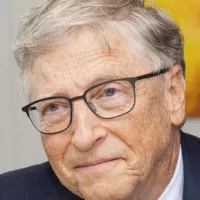
Bill Gates an American businessman and philanthropist revolutionized personal computing...

Donald John Trump is an American politician media personality and...
Home Box Office HBO is an American pay television service...

Instagram is a photo and video-sharing social networking service owned...
Ukraine is a large country in Eastern Europe second in...
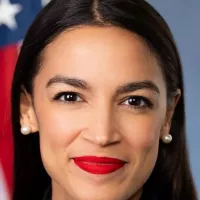
Alexandria Ocasio-Cortez AOC is a prominent American politician and activist...
Trending
5 months ago Pope Leo XIV's First 100 Days: Reflections, Reactions, and US-Born Leadership
Adam Schefter is a prominent American sports writer and reporter best known for his role as an NFL insider at...
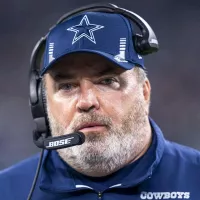
Mike McCarthy is an American football coach He was the head coach of the Dallas Cowboys - and the Green...
8 months ago World's Oldest Person, Inah Canabarro Lucas, Dies in Brazil at 116
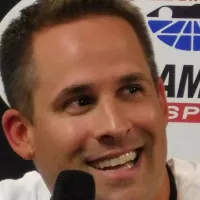
Josh McDaniels is an American football coach currently serving as the offensive coordinator for the New England Patriots He has...
5 months ago American hiker Cole Henderson found dead in Spanish Pyrenees after going missing.
Popular

Stranger Things created by the Duffer Brothers is a popular...

XXXTentacion born Jahseh Dwayne Ricardo Onfroy was a controversial yet...
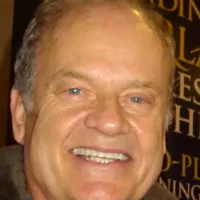
Kelsey Grammer is an accomplished American actor producer and singer...

Candace Owens is an American conservative political commentator and author...

Bernie Sanders is a prominent American politician currently serving as...

Marco Rubio is an American politician attorney and diplomat He...
